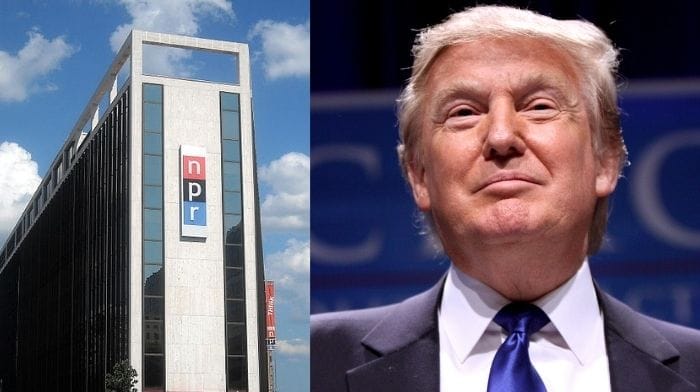
By Lynn Uzell for RealClearPolicy
When historians look back on the first decades of the 21st century, they may be surprised at how effectively National Public Radio helped elect Republican candidates.
That claim might seem surprising. Anyone who listens to NPR knows that the nonprofit broadcast organization, which has tilted left since its inception, has recently turned into something like the publicity wing of the Democratic National Committee. But NPR’s evident design to discredit Republicans is no less subject to the law of unintended consequences than any other aspect of political life.
Last November’s election in Virginia is a case in point. A focal point of Republican candidate Glenn Youngkin’s campaign for governor was the encroachment of Critical Race Theory into public schools. Experts disagree about whether that issue helped him win the election. Less studied is the way that news coverage of the issue might have affected voters.
RELATED: Conservatives Ready Law-and-Order Agenda Ahead Of Midterm Elections
NPR repeatedly dismissed Youngkin’s concerns with assurances that CRT “is not taught in Virginia schools.” NPR’s reporters repeated the same mantra over and over and over again. This insistence must have sounded Orwellian to parents familiar with the preponderance of evidence showing that Virginia’s Department of Education had been promoting CRT for years.
Even worse than repeating the talking points of Democratic candidates as though they were facts, NPR also trumpeted the derogatory comments of Democrats who dismissed criticism of CRT in the classroom as a racist “dog whistle.” Reporters repeated the accusation on Election Day and again in their post-election coverage.
Instead of investigating why some parents might share Youngkin’s concerns, NPR repeatedly portrayed these parents as ignorant and misinformed. Last November’s tone-deaf coverage demonstrates that NPR’s reporters are incapable of hearing how they sound to anyone outside their bubble. They rarely speak to Republicans or conservatives.
They could be forgiven for assuming that few outside the liberal bubble are even paying attention. A 2020 Pew study found that, of those who named NPR as their main source for political and election news, 87% identify as Democrats or lean Democrat. Those numbers suggest that NPR is rapidly transforming into a Fox News for the Left (93% of those who primarily get their news from Fox are Republican or lean Republican).
Nevertheless, although Republicans make up only a tiny share of NPR’s core audience, they do know how reporters portray them. When former CEO of NPR Ken Stern spent a year getting to know Red America, he found that conservatives frequently “wanted to talk about the media and when they did, they were almost uniformly angry. They felt patronized.”
This brings us back to NPR’s role in Youngkin’s win last November. It’s well known that anger motivates voters more than any other emotion, and NPR’s condescending reporting frequently makes Republican voters angry. Meantime, the emotion that NPR inspires in its core audience (Democrats) is contempt for Republicans – but such feelings of disgust, it turns out, suppress voter turnout.
If this analysis is correct, then NPR must be seen as a key factor motivating conservatives to vote and demotivating Democrats from doing so. That’s great news for Republicans who care about nothing but winning elections. But it’s terrible news for anyone who cares about the political health of the country.
RELATED: Vulnerable Dems Are Panicking Over Biden’s Looming Title 42 Immigration Disaster
America is facing a deepening crisis of polarization and distrust. According to the Reuters Institute Digital News Report for 2021, the U.S. now has the lowest levels of trust in news media, just 29%, ranking 46th out of 46 countries surveyed. Furthermore, according to a 2020 Gallup Poll, 83% of Americans believe the news media deserves at least some blame for political divisions in the country.
Nearly half blame the media “a great deal.”
It’s worth mentioning that NPR is no worse than other sources for news today. Nevertheless, being a “public” station and relatively immune to commercial influences, it ought to deliver a better product than broadcast news. Yet its reporters merely promulgate the talking points of one political party.
Future historians may have to account for the death of American democracy. No doubt they will devote a few pages to the rising demagoguery of politicians in the early 21st century. But they will also have to look at how the American news media, operating in one of the freest countries in the world, voluntarily chose propaganda over journalism.
Abandoning their vocation of informing the citizenry, reporters instead sowed discord, distrust, and mutual animosity among Americans. The recent degeneration of NPR into National Pravda Radio will deserve special attention.
Syndicated with permission from Real Clear Wire.
Lynn Uzzell is Visiting Assistant Professor of Politics at Washington and Lee University. She specializes in the Constitutional Convention of 1787 and the political thought of James Madison.
